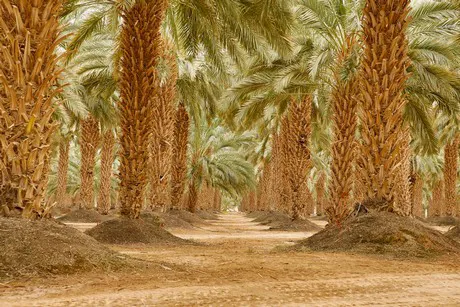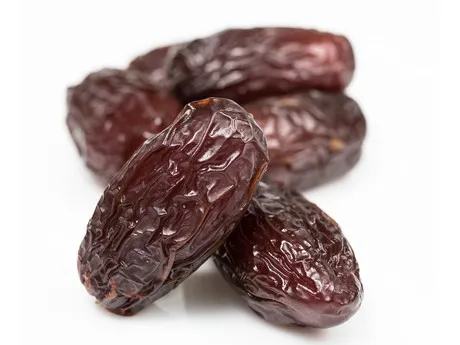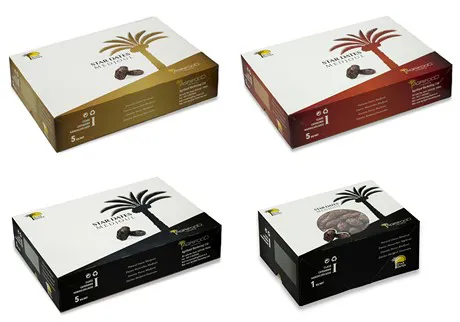“This year Israel will have a better quality of Medjoul dates than last year,” says Avi Dagul of AgriFood Marketing. “It is also safe to assume that we will also have higher quantities. Last year we lost about 4.000 tons because of the weather. This year, Israel is going to harvest about 42.000 tons Medjoul dates compared to 38.000 last year.”
In Israel, the new Bahri season will begin in two weeks. This season typically begins at the end of July, but now it will begin in the second week of August. There is a slight delay of about ten days in the harvest of this product. “This happened because of the cold weather overtaken the Israeli spring in April/May,” says Avi Dagul of the newly-formed AgriFood marketing.
This unusually cold weather caused a delay in all the date varieties, including the Bahri, Medjool, and Deglet Noor, of about a week to ten days. According to Avi, this did not affect the quality. “This year, the quality will be, as far as we can see, very good,” he says.

More than 40.000 tons of Medjool
The new Medjool season starts in September. Israeli production of Medjool will be around 40.000 to 42.000 tons and export is estimated at approx. 16.000-20.000 tons. “We plan to export around 1.200 tons for the company’s first year. When you change, you lose some clients and growers. We set everything up for this quantity,” Avi explains.
AgriFood also plans to export about 100 tons of Bahri and 60 tons of Deglet Nour. They will be sending the product to their regular destinations - Central and Western Europe. However, the new company has found new markets in Brazil, Australia, and Japan.
“We are sending only small volumes to Japan, but it has finally started at least,” says the exporter. Avi believes they will get an excellent price for their Medjool dates in Japan. It will not, however, be the outrageous prices being paid for certain other fresh products in that country. “The prices of our Medjool will be much higher than in Europe, but it will still be reasonable.”

Morocco is increasing production
Avi explains that there is a lot of Moroccan Medjool. “Quantity is increasing every year. They plant thousands of trees, but the climate there which has higher percentage of humidity is not ideal for Medjool. Therefore, I believe that Israel´s climate helps us provide the world´s well known quality we are famous for.
I believe most of their product will be sold locally in Morocco In the near future”. Egypt has also started to produce Medjool dates. Avi believes they will be in the market in five or six years. “I expect them to be a major competitor within a few years. But I cannot yet tell you at which level.”
However, the demand and consumption of these dates increases yearly. “So, if demand increases at the same pace as production, I do not see any problem with competition,” Avi continues. He thinks there might be a problem when it comes to volumes, but not quality.

Quality is an advantage
The US also produces good quality dates, but they are mostly for local consumption. “I believe the competition in the exported dates market will be mainly between Israel, Egypt, and Morocco. However, our advantage is that our quality is very good throughout the year.”
How do you know what makes a good quality date? “First of all, how they look is very important,” says Avi. “When you come across Israeli Medjool, you see dates with a smooth texture. They are of good size, and usually with no skin separation.”
AgriFood Marketing now rents a packing house with new machines with a high capacity. “It makes more economic sense for us. We can sort 60 tons of dates per day,” Avi says. “We are in this market, as we have been for the last 4 decades and now as the younger generation is kicking in we are certain that we will keep on delivering this great fruit all over Europe and the rest of the globe for many years to come”, Avi concludes.
For more information:
Tal Daguk
AgriFood Marketing
Tel: +972 50 4388866
Email: tald@agrifood.co.il
https://www.agrifood-marketing.com/
